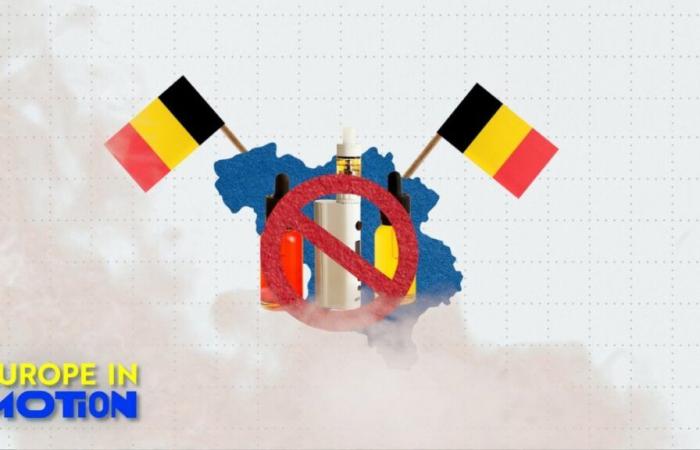This article was originally published in English
Belgium has become the first EU country to ban the sale of disposable e-cigarettes, while Luxembourg, Estonia and the Czech Republic have the highest vaping rates.
ADVERTISEMENT
The rise of electronic cigarettes and vaping products poses a new public health problem in Europe.
While vaping rates remain relatively low among adults, they are considerably higher among young Europeans, according to the latest OECD report.
Luxembourg, Estonia and the Czech Republic have the highest vaping rates, above 10%while Bulgaria, Austria and Croatia have the lowest rates, below 1%.
In 2022, the average vaping rate among people aged 15 to 24 was 6.5%. Estonia had the highest rates (30%), followed by the Czech Republic (25%) and Luxembourg (20%).
The sharp increase in vaping rates among young people in Estonia and the Czech Republic in recent years has been accompanied by a significant drop in smoking.
“Vaping has spread among teenagers and adults around the world”explains Josef Hamoud from the University Medical Center in Göttingen.
“Since e-cigarettes are widely touted as healthier alternatives to traditional smoking, they have gained popularity among people trying to quit smoking”he adds.
Imminent measures in the EU
Several EU countries have implemented regulatory measures in response to the growing practice of vaping.**
More Belgium became the first EU country to completely ban the sale of disposable e-cigarettes from January 2025citing concerns about their appeal to young people and their impact on the environment.
Similarly, Ireland announced plans to ban disposable e-cigarettes and ban all vaping flavors except tobacco.
“The nicotine in e-cigarettes is highly addictive, so we need to do everything we can to discourage non-smokers from starting vaping.”said Dr Filippos Filippidis, chairman of the anti-smoking committee of the European Society of Respirology.
“E-cigarettes may play a role in quitting smoking for some people, but we need to ensure that appropriate support is freely available to help people quit”he specifies.
In June, 12 EU countries have asked the European Commission to implement previously postponed tobacco reformswhich could include banning flavored vaping products and limiting their nicotine content.
The delay of these measures until 2025 has raised concerns about the EU’s commitment to its anti-smoking programme, with some questioning whether the tobacco industry had any influence on the issue.
Video editor • Mert Can Yilmaz
Belgium






